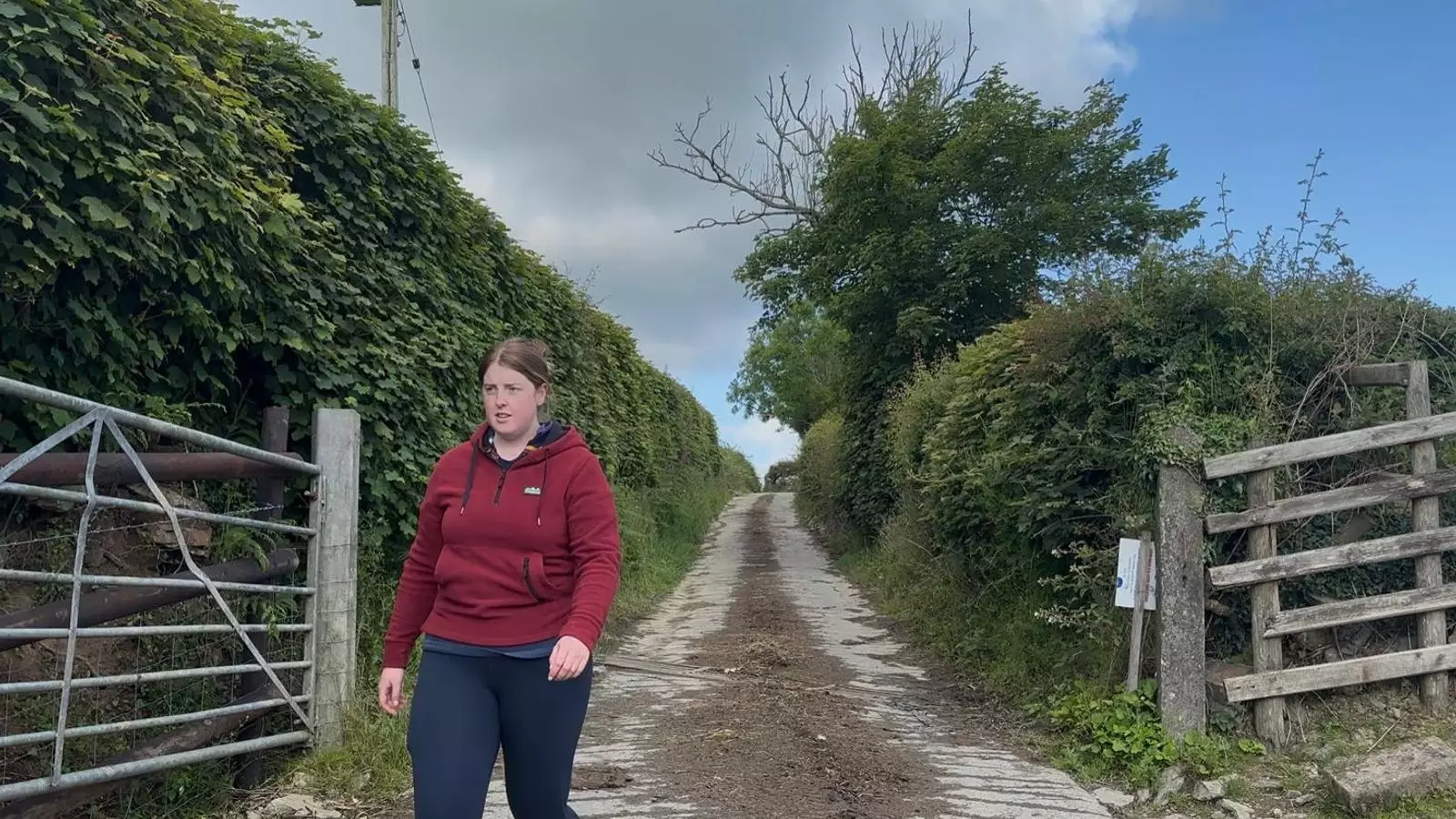In a staggering revelation, Wales finds itself grappling with an alarming escalation in rural crime, marking its highest recorded cost in over a decade. According to a recent report by insurance provider NFU Mutual, the financial toll of rural crime soared to an estimated £2.8 million in the past year, a distressing 18% increase from the previous year. This alarming trend paints a bleak picture for farmers, who depend on their livestock and equipment for survival, highlighting the critical need for effective intervention.
For farmers like Caryl Davies, the personal and professional impact of these crimes is dire. A mere 21 years old, Davies finds her once peaceful existence on a beef and sheep farm in Pembrokeshire shattered. “Having our quad bike stolen last August made us feel really unsafe at home,” she revealed, encapsulating a growing sentiment in rural districts. The stark reality of theft in rural areas, often considered safe havens, is a disorienting and traumatic experience for those residing in them.
The significance of these thefts is magnified by the cost of replacement. For Davies and her family, the quad bike was more than just a tool; it was a lifeline, essential for daily operations on the farm. With a replacement cost nearing £10,000, the financial strain deepens, forcing farmers to divert funds from critical areas just to secure their holdings against further attacks. The investment in enhanced security measures, such as more advanced CCTV systems, only compounds the challenge—an irony not lost on those already facing razor-thin margins.
The Broader Impact of Rural Crime
The concerning statistics don’t stop with quad bikes. James Bourne, another victim of rural theft, recounts the heart-wrenching loss of over 200 sheep from his farm in Pontypool. “Losing sheep is a hit on my business and my young family alike,” Bourne stated, epitomizing the plight of farmers who continuously face uphill battles in an industry fraught with challenges. The rising cost of essential resources, combined with the burden of theft, creates a precarious situation that many farmers are finding increasingly insurmountable.
There is a disheartening trend that the NFU Mutual has identified: organized criminals are not only isolating their targets but are also becoming more sophisticated. The notion of criminals utilizing drones to survey properties or strategically targeting multiple farms in one night is a terrifying evolution of rural crime. These developments underline the urgent need for heightened vigilance and cooperation within farming communities to combat this growing threat. The call for collaboration is clear, yet many farmers are left wondering how they can possibly safeguard their enterprises from such calculated assaults.
The Response from Authorities: Is it Enough?
While police forces in Wales have acknowledged the crippling effects of rural crime on local communities, their responses often seem lackluster in the face of a crisis. Efforts to introduce new technologies, such as advanced DNA asset-marking kits, are commendable, but do they address the root of the problem? Many farmers are left pondering the efficacy of such measures when faced with the constant threat of organized crime. Temporary Chief Superintendent Jason White’s promise to increase resources within rural crime teams is a step in the right direction; however, the sheer scale of the areas that law enforcement has to monitor raises questions about feasibility.
The community vigilance that authorities are banking on is commendable but relies heavily on the emotional and psychological burden it places on farmers who are already struggling. It’s crucial that systemic solutions not only empower farmers but also provide them with tangible assurance that their livelihoods are being protected. For many, the fear and vulnerability they are experiencing is a far cry from the rural ideal of tight-knit and safe communities.
Deeper Societal Implications
The implications of rising rural crime extend beyond mere economics; they threaten the fabric of rural life itself. For generations, farms have been the backbone of rural communities, providing not only food but also identity and stability. A pervasive atmosphere of fear disrupts this critical bond and undermines a way of life that has endured through centuries.
Rural prosperity is contingent upon safety, yet that security is becoming increasingly elusive. Moving forward, society must reflect on these harsh realities and advocate for policies that will not only deter crime but also foster a supportive environment that recognizes the invaluable role farmers play. The time for complacency is over; we must demand a systemic overhaul that prioritizes the security of our rural communities and the livelihoods they sustain. It is imperative that we not only protect farmers but also give them the confidence to thrive, fostering resilience in an industry that is fighting an uphill battle.

Leave a Reply